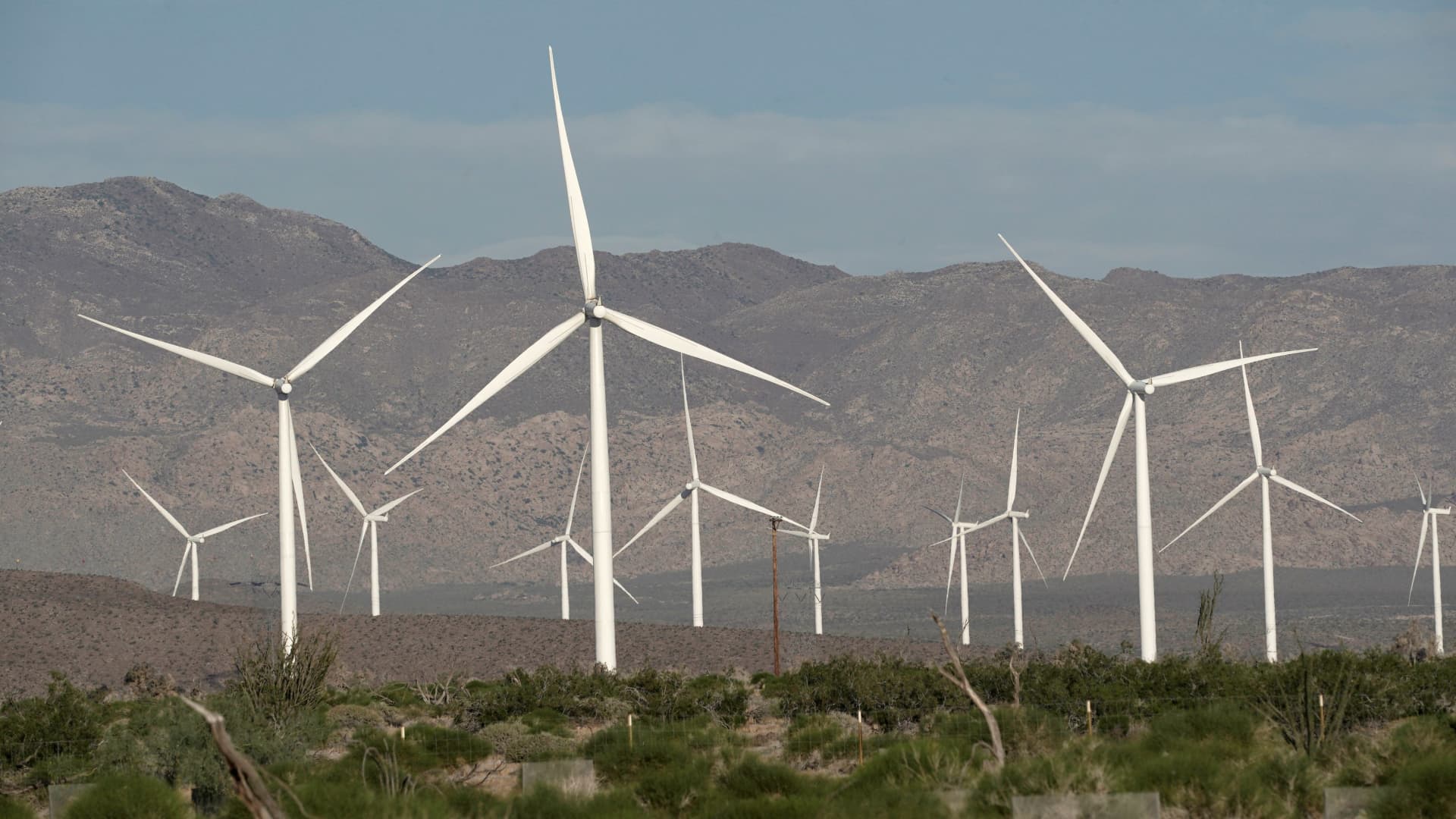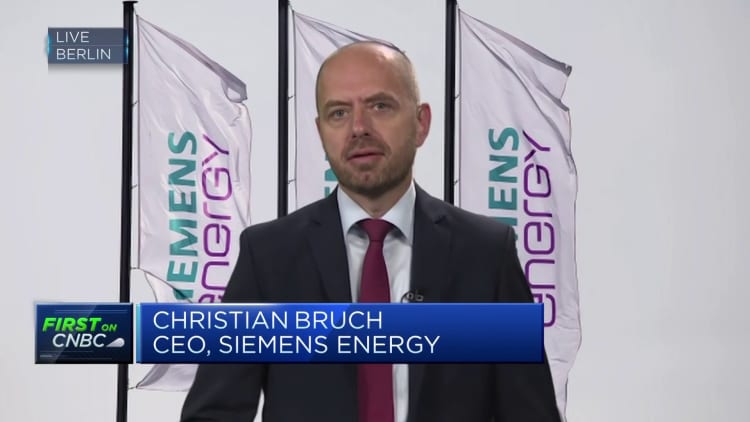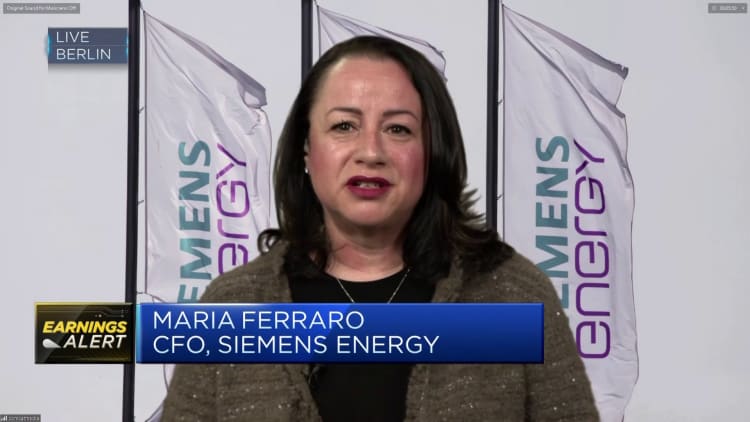Siemens Energy shares jump 13% after guidance raise and leadership change at embattled wind turbine unit



Siemens Energy shares soared as much as 13% on Wednesday after the German renewables firm raised its forecast for the year and announced that the CEO of its troubled wind turbine unit will be replaced amid “comprehensive restructuring measures.”
It said in a statement that Jochen Eickholt at Siemens Gamesa informed the board that he will step down from his position as CEO by mutual agreement on July 31, and be succeeded by Vinod Philip.
“In a very difficult situation at Siemens Gamesa, Jochen laid the central foundations for the urgently needed reorganization and new start within Siemens Energy. It is only fair to emphasize that the causes of the quality problems did not fall under his tenure as CEO,” said Siemens Energy CEO Christian Bruch in a statement.
It said that Gamesa had initiated comprehensive restructuring measures and “steps for long-term strategic development” in order to boost operating margins.
Strong demand for power grid equipment amid the company’s “success” in stabilizing the wind business led Siemens on Wednesday to raise its forecast for the year.
Power-generating Siemens 2.37 megawatt (MW) wind turbines are seen at the Ocotillo Wind Energy Facility California, May 29, 2020.
Bing Guan | Reuters
For the full year, the company now expects a comparable revenue growth between 10% and 12% and a profit margin before special items between negative 1% and positive 1%. It previously forecast comparable revenue growth between 3% and 7% and a profit margin before special items between negative 2% and positive 1%.
Shares of Siemens Energy closed up 12.8%, paring some of its gains from earlier in the trading session.
Speaking to CNBC’s “Squawk Box Europe” on Wednesday, CEO Bruch said Siemens Energy had enjoyed a “good quarter,” citing “very positive” order momentum in energy. However, he warned the company still needed to work through some quality issues.
“We are tackling the things in wind. We have been working over the last two years on a lot of things. Jochen launched a lot of the right activities in terms of this operational turnaround. We knew it was going to take years for us to really get it back on track,” Bruch said.
“Going forward, we are going to be active in onshore and offshore. We are going to focus the business on offshore more. We hammer down on the volume product in offshore,” he added.
Siemens Energy suffered a rough 2023. Problems with manufacturing faults at Gamesa forced the parent company to a 4.6 billion euro ($4.94 billion) loss for the fiscal year. An investigation into quality issues was launched at the wind turbine division.
In June, during a particularly turbulent time for the stock, Siemens Energy scrapped its profit forecast and warned that the costly failures at Gamesa could drag on for years.

The wind industry has expanded rapidly over the past two decades, lowering costs to rival — and sometimes undercut — those of fossil fuels, while boosting efficiency with ever-bigger turbines and reducing reliance on state subsidies. But the issues last year led investors to worry that Gamesa’s problems might be a symptom of a wider problem for the industry.
Meanwhile on Wednesday, Siemens Energy reported a net income of 108 million euros for the last quarter and raised its outlook on “stronger growth and positive cash development.”
— CNBC’s Elliot Smith contributed to this article.